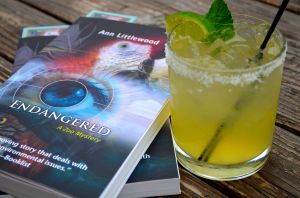
(*where “b-slapped” is a hyphen-manic word such that “b” stands in for the witch-rhyming word.)
After last week’s post, I promised I’d write something lighthearted this week. What could be better than hyphens? Those slivers of punctuationary (yes, I just made up an adjective) yumminess that allow for all manner of over-the-top compound modifiers, not to mention nouns you’d never find in the dictionary–(that’s supposed to be an em-dash, NOT, no-way-ever, a hyphen) like hyphen-mania, which as you might have guessed, is not to be mistaken for hyphen-phobia.
I used to think that I was a semi-colon* person, and secondarily, an em-dash (should that hyphen be there? I like the looks of it, so yes) person. I knew I had an issue with semi-colons when a friend informed me that using semi-colons within dialogue quotes was idiotic. “We don’t talk in semi-colon; just use a period,” he said.
Frankly, I thought what he’d said was a wonderfully semi-colon-ish (aaah, there are my pretty hyphens) set of statements. Talk about being in denial. After a sweat-soaked internal struggle, I gripped my mouse and fixed the dialogue before sending the manuscript to the copyeditor. I use em-dashes semi-correctly, so I thought I was safe.
But no! I have a hidden addiction. An insidious-sneaky-little-devil of an affliction. You inject a hyphen once, and before you know, you’re injecting them anywhere at anytime, leaving a swath of overwrought-and-trying-too-hard phrases behind you.
I had to accept my problem, face it head-on (kind-of), and accept my copyeditor’s sponsorship. Not that I don’t relapse, of course, but with her around, I hope to present many a hyphen-happy novel to the world…(Ellipses are good. I like ellipses, too, but I tend to avoid them in my fiction.)
To that end, Ms. Copyedit-trix, she b-slapped me from page 1 to page 369. Here are a few of the many ways I succumbed to my addiction: (Hi, Colon, didn’t want to ignore you!)
Adjectives
hen-pecked –> should be –> henpecked
mid-air —-> midair
wolf-like —-> wolflike
under-lit —-> underlit
old-world —-> Old World
Nouns
bog-hole —-> bog hole
web-porn —-> web porn
sofa-bed —-> sofa bed
line-up —-> lineup
screw-up —-> screwup
half-mile —-> half mile
yet: hardass —-> hard-ass (my kind of word, hugs to you, Hyphen!)
Verbs
re-shingle —-> reshingle
over-think —-> overthink
Even Interjections!
ah-ha —-> aha
Adverbs?
Thankfully, no. Throw me out of the writing tribe if I ever use a hyphen after an -ly adverb. Even I know better than to write that kind of badly–written badly written prose.
What about you, any punctuation addictions you’re ready to confess?
—
*Mmm-hmm, don’t you be yanking out my hyphen!









